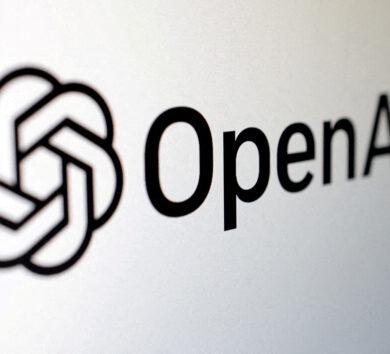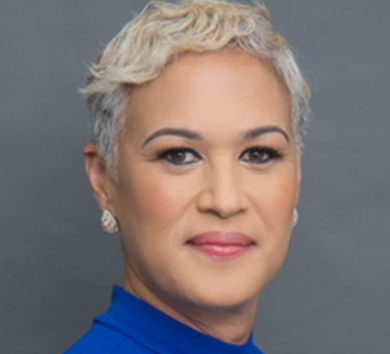
“It is absurd to say we took advantage of Rita Humphries-Lewin”
Cornerstone confirms initiation of court filing to dismiss groundless accusations

In what can be described as a proactive and assertive move, the Cornerstone Group has filed an application in the Supreme Court for a declaratory judgment relating to a 2021 transaction involving Rita Humphries-Lewin.
Cornerstone United Holdings Jamaica Limited (Cornerstone Jamaica) and Cornerstone Financial Holdings Limited (Cornerstone Barbados) (together “Cornerstone”) are vehemently challenging and repudiating unfounded allegations that seem designed to cast a shadow on its integrity and operations.
Cornerstone Jamaica has voluntarily initiated court proceedings seeking legal redress and protection for its business interests and reputation, urging the Court to address various crucial matters, including the validity and enforceability of certain agreements involving Cornerstone and Mrs Rita Humphries-Lewin in connection with the transaction at the centre of these unfounded claims made in a letter dated March 31, 2022, written by Mrs Deborah Mordecai Edwards, a niece of Mrs Humphries-Lewin.
This preemptive action indicates the Cornerstone Group’s commitment to bring to light what it perceives as groundless and baseless accusations, seemingly as part of an attempt to extract certain payments from Cornerstone.
The Affidavits filed in support of the claim are from Cornerstone founder and CEO Paul Simpson and Chief Investment Officer Jason Chambers, and Sonia Owens, Barita’s Vice President of Treasury & Financial Institutions, and they outline certain critical events.
The affidavit of Sonia Owens, a long-standing and trusted advisor of almost 40 years, referred to as the “Exchequer” by Mrs Humphries Lewin, whose standing and reputation in the financial services industry are stellar, provides an important perspective and insight into aspects of the allegations and to the evolution of the transaction. Ms Owens joined Barita in 1984 as Operations Clerk reporting directly to Mrs Humphries Lewin, with Mrs Humphries-Lewin reposing full confidence and trust in her from their many years of working together. In her sworn statement, she underscores her extensive nearly four-decade acquaintance and close personal bond with Mrs Humphries-Lewin.
Ms Owens notes, among other things, the following important points in her affidavit:
- She was the person who introduced the transaction to Mrs Humphries-Lewin and her husband, Karl Lewin, having been presented with the term sheet and asked to review it;
- Her presence at a meeting with the Lewins and Chambers, where the investment opportunity was extensively discussed with the Lewins which ended with Mrs Humphries- Lewin expressing her interest in becoming a Cornerstone shareholder;
- Karl Lewin, who has referred to himself as Mrs Humphries-Lewin’s advisor, was present and involved in all discussions and negotiations around the transaction and he and Mrs Humphries-Lewin asked pertinent questions and requested certain changes to the transaction;
- Ms Owen’s testimony attests to the fact that as Mrs Humphries-Lewin’s personal advisor, she interacts with her extensively on a frequent basis, and she saw no signs of mental incapacity.

The affidavits from Simpson, Chambers, and Owens present their interactions with Rita Humphries-Lewin and her husband, Karl Lewin, dispelling any notion that Mrs Humphries-Lewin was in any way mentally incapacitated and that her signature on the various transaction documents was not authentic. It is worth noting that Mrs Humphries-Lewin maintained her role as a director on the Barita Investments Limited Board as late as January 2021, alongside her engagements with other corporate entities. If Mrs Humphries Lewin were mentally incapacitated, wouldn’t this prompt pertinent questions and trigger a deeper inquiry into whether family members alerted relevant persons of such a condition in writing? or took action to safeguard Mrs Humphries-Lewin’s reputation had she been truly indisposed? How else would Ms Owens or Barita or the directors know of a diagnosis without a medical report or information at that time from the family?
Moreover, the affidavits challenge whether Mrs Mordecai Edwards or any other family member of Mrs Humphries-Lewin communicated any purported dementia diagnosis to the principals of Cornerstone or other relevant parties during Mrs Humphries-Lewin’s directorship on the Barita board. Simpson’s affidavit brings forth crucial revelations, including:
- Mrs Humphries-Lewin’s longstanding interest in becoming a Cornerstone shareholder is based on a promise made to her as early as 2018 when she sold most of her interest in Barita to Cornerstone.
- Mrs Humphries-Lewin’s husband and advisor, Karl Lewin’s presence in negotiating the transaction and to Mrs Humphries-Lewin’s signing of all transaction documents and the fact that Mr Lewin signed as a witness to the material transaction documents.
- The prior notice to Mrs Humphries-Lewin about the forthcoming transaction several months after she signed the transaction documents and her affirmation of desire to proceed with the transaction on the advice of her husband, Karl Lewin.
Public expressions of contentment with the management of Barita following Cornerstone’s acquisition of shares. Chambers’ affidavit delves into the introduction of the transaction to Mrs Humphries-Lewin and her husband. Noteworthy points include:
- Advance notice was provided to Mrs Humphries-Lewin regarding the impending transaction, with her acknowledgement in writing.
- Involvement of a third party preceding the niece’s supposed concerns, warranting closer examination in subsequent discussions.
- Clear elucidation of how the pricing and methodology around the pricing of the Cornerstone shares sold to Mrs Humphries-Lewin were determined.
Regarding the price, both affidavits go into detail about how the price offered to Mrs Humphries-Lewin was derived and why it was different from the price that was previously offered to the existing Cornerstone shareholders via a rights issue. Chambers in his affidavit stated that:
“The rights issue… was undertaken for the purpose of raising equity from the existing shareholders… Historically, the pricing of all of Cornerstone’s rights issues had always been totally agnostic of the true fair value of the shares, the subject of each rights issue. As such, there was never any intention for the price of the rights issue to reflect the fair value of the shares issued.”
Chambers also noted, which is in fact commonly true, that “rights issue prices are generally discounted relative to the fair value of the shares being issued”.

He highlighted that the difference in the price of the rights issue and the offer to Mrs Humphries- Lewin was justified given that “As a new shareholder coming into Cornerstone, the price at which shares were offered to Mrs Humphries-Lewin could not be the same as the price of the shares being offered in the rights issue, as this would have prejudiced the existing shareholders in Cornerstone who would have purchased their shares years earlier when the value of the shares would have been significantly lower because the accretive value of the Group had not yet materialized and who would have taken start-up risk in anticipation of same, including participating in various equity raises over the years to facilitate the Group’s expansion to what it was at the time of the offer to Mrs Humhries-Lewin.”
In seeking to establish the reasonableness of the price, Chambers showed a table of comparable companies and their Price to Book ratios at the time of the offer which were used as a basis to value Cornerstone. The extract from his statement is below:
“The offer price for those shares was guided by a price to book valuation that was conducted at the time. The table below reflects the comparators that were considered at the point in time as a reference point for the offer. Cornerstone closed the financial year 2020 with a combined book value of US$7.02. When the average price to book ratio (excluding outliers) was applied to Cornerstone’s audited financial year 2020 book value the result was US$11.30. The APO price of US$10.80 represented a ~5% discount to the calculated value.“
| Company | Price (Mar 31, 2021) | Book Value | Price to Book Ratio |
| JMMB GROUP LTD. | 32.87 | 30.43 | 1.08 |
| NCB FINANCIAL GROUP LTD. | 139.10 | 66.88 | 2.08 |
| SCOTIA GROUP JAMAICA LTD. | 41.06 | 36.69 | 1.12 |
| SAGICOR GROUP JAMAICA LTD. | 50.62 | 34.51 | 1.47 |
| EY Banking Sector | 1.78 | ||
| Average EX- Outliers | 1.61 |
A letter dated December 5, 2022, sent by Cornerstone’s attorneys to Mrs Mordecai-Edwards’ attorneys is also instructive as it refers to attempts by Mrs Mordecai Edwards to obtain a substantial sum amounting to US$20 million from Cornerstone. Cornerstone Jamaica, in a resolute stance, wrote to Mrs Mordecai Edwards’ attorneys-at-law, strongly rebuffing her request for a monetary payment, which was the culmination of a series of exchanges between the parties in which Mrs Mordecai Edwards, through her attorneys, sought to get Cornerstone to make the monetary payment. Cornerstone, in its December 5th response, laid out certain facts corroborating the veracity of the transaction and voluntarily copied relevant parties such as the Financial Investigations Division, the Bank of Jamaica (BOJ), the Financial Services Commission, and the Office of Director of Public Prosecutions.
Cornerstone stated in the said December 5th letter that it would report to any relevant regulatory body in any jurisdiction any attempts by Mrs Mordecai Edwards to manipulate and misuse regulatory or criminal law processes for the dominant purpose of pursuing a private, commercial claim for over US$20 million, relying on a limited power of attorney which was executed after the purported dementia diagnosis. The letter also questioned Mrs Mordecai Edwards’ conduct in relation to various elements of her allegations set out in the March 31, 2022 letter to BOJ and warned her that the Cornerstone attorneys were exploring the common law offence of creating public mischief.

In this era of misinformation, one should note that the Cornerstone Group’s proactive stance in refuting what it calls baseless allegations and seeking judicial intervention signals its thought process. This underscores their commitment to upholding their business integrity and reputation. The submitted claim, supporting affidavits, and the revelations made therein form a compelling narrative that calls for a meticulous and impartial assessment of the circumstances surrounding the disputed transaction and the associated allegations, including requests for payments of cash from Cornerstone grounded in threats to make reports to the FID. Is there more to this story? As these legal proceedings unfold, the truth remains the ultimate pursuit in ensuring justice and transparency.
What must be stressed here is that senior members of the Cornerstone Group’s personal and professional reputations have been maligned with no evidence to substantiate what are baseless claims. Also, financial sector companies survive on the oxygen of confidence and such spurious claims could have a deleterious impact on them and their operations.







Comments